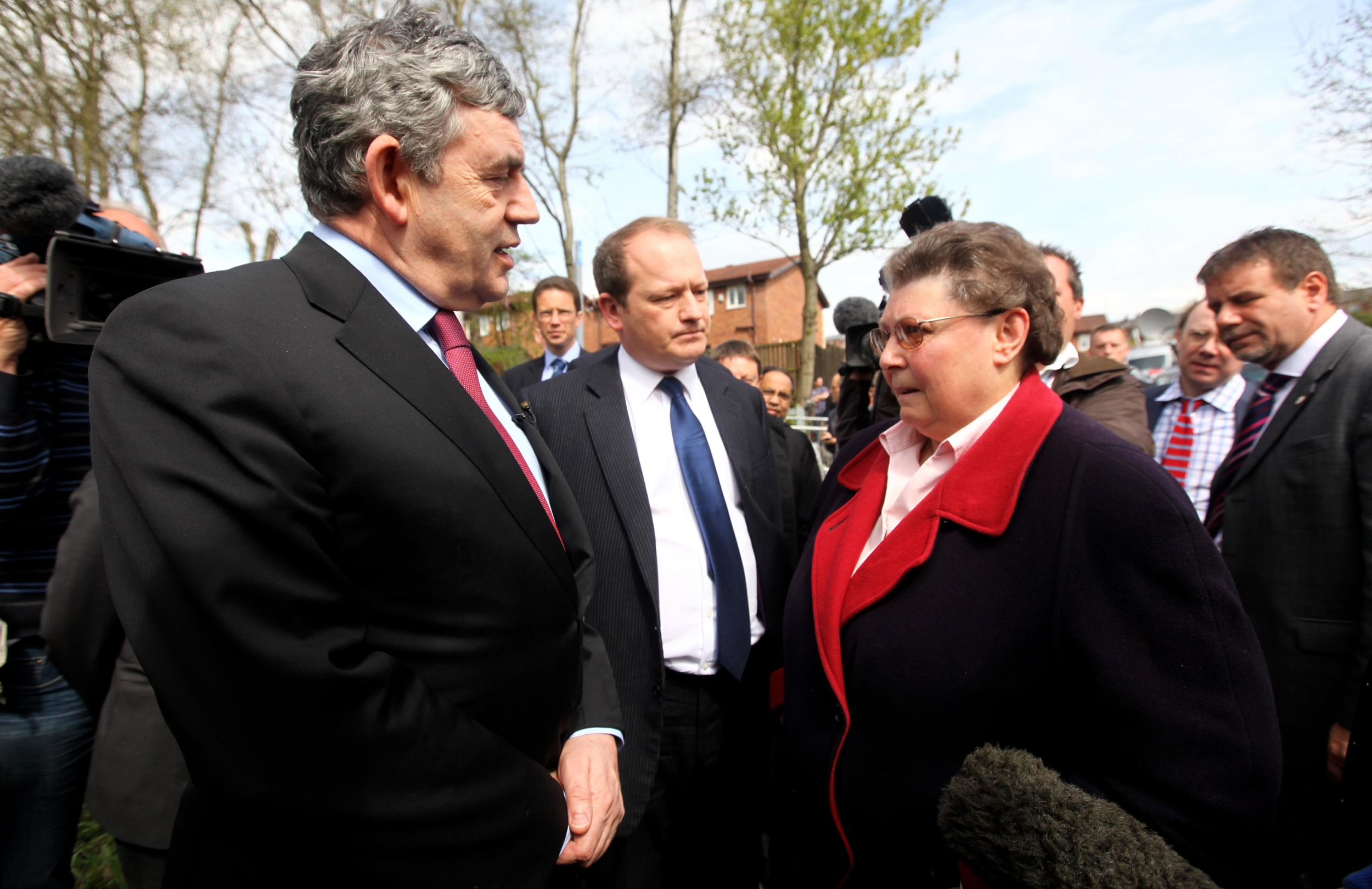
Gillian Duffy’s encounter with Gordon Brown could be the starting point of the story of the entire decade, from the election campaign of 2010 to Britain’s departure from the EU in January 2020.
She expressed a popular concern about free movement of people; the prime minister, leader of the political class, dismissed that concern as bigotry. There is a thread leading from that clash to the vote to leave in 2016 and to our actual departure four years later.
“All these eastern Europeans what are coming in: where are they flocking from?” Her truculent exchange with the prime minister, on an election tour of Rochdale, was symbolic of the breach that was opening up between the Labour Party and part of its working-class vote.
Download the new Independent Premium app
Sharing the full story, not just the headlines
At the time it was easy to dismiss – indeed, dismissing it as mere bigotry was what the fuss was about. Free movement was not much of an issue in the 2010 campaign. Europe was an election subject mainly because there were fears that the aftershocks of the financial crisis were going to break the euro.
So the fuss about “some bigoted woman” who “used to be Labour”, as Mr Brown called her, unaware that his microphone was still on, was, at the time, mostly about presentation. A lot of the gleeful coverage by the metropolitan media was along the lines of: “Oh dear, the prime minister has been caught out telling the truth about an awful voter; how is he going to get out of that?”
But something deeper and more important was going on. Worrying about free movement wasn’t just bigotry, although there might have been an element of xenophobia about it. Unless you call 52 per cent of British voters racist, there was respectable argument about national sovereignty too.
All the leading politicians, of all parties in parliament, were behind the curve (and Nigel Farage was a fringe candidate whose banner-towing plane crashed). For Mr Brown, David Cameron and Nick Clegg, EU membership was a given. They knew that one of the conditions was the free movement of workers, but for most of their lives the numbers had been small. If they had reservations when 2m central Europeans arrived in Britain after EU enlargement in 2004, they rationalised it as a price worth paying for the greater benefits of membership.
But that was not what it felt like for Ms Duffy. When journalists revisited her at the time of the 2016 referendum, she said: “I love being English and I don’t want to be a European.”
Her outburst six years earlier was a significant marker of the start of the realignment of British politics, by which the Labour vote ended up about as middle-class as the Tory vote, and Tory voters ended up about as working-class as Labour ones.
As the Brexit divide replaced the class divide as the big determinant of British voting behaviour, Ms Duffy turned out to have been a harbinger from the future, a messenger sent from the ex-Labour seats of the north, midlands and north Wales that fell to the Tories in 2019.
Her reward was to be dismissed as a bigot by one Labour leader and to be ignored by his successors. Ed Miliband and Jeremy Corbyn thought the way to win back working-class voters was to offer to renationalise the railways.
It was Boris Johnson who knew what she was about. As leader of the Leave campaign and then as the prime minister who could deliver Brexit, he understood the desire of many traditional Labour voters for national pride and independence.


